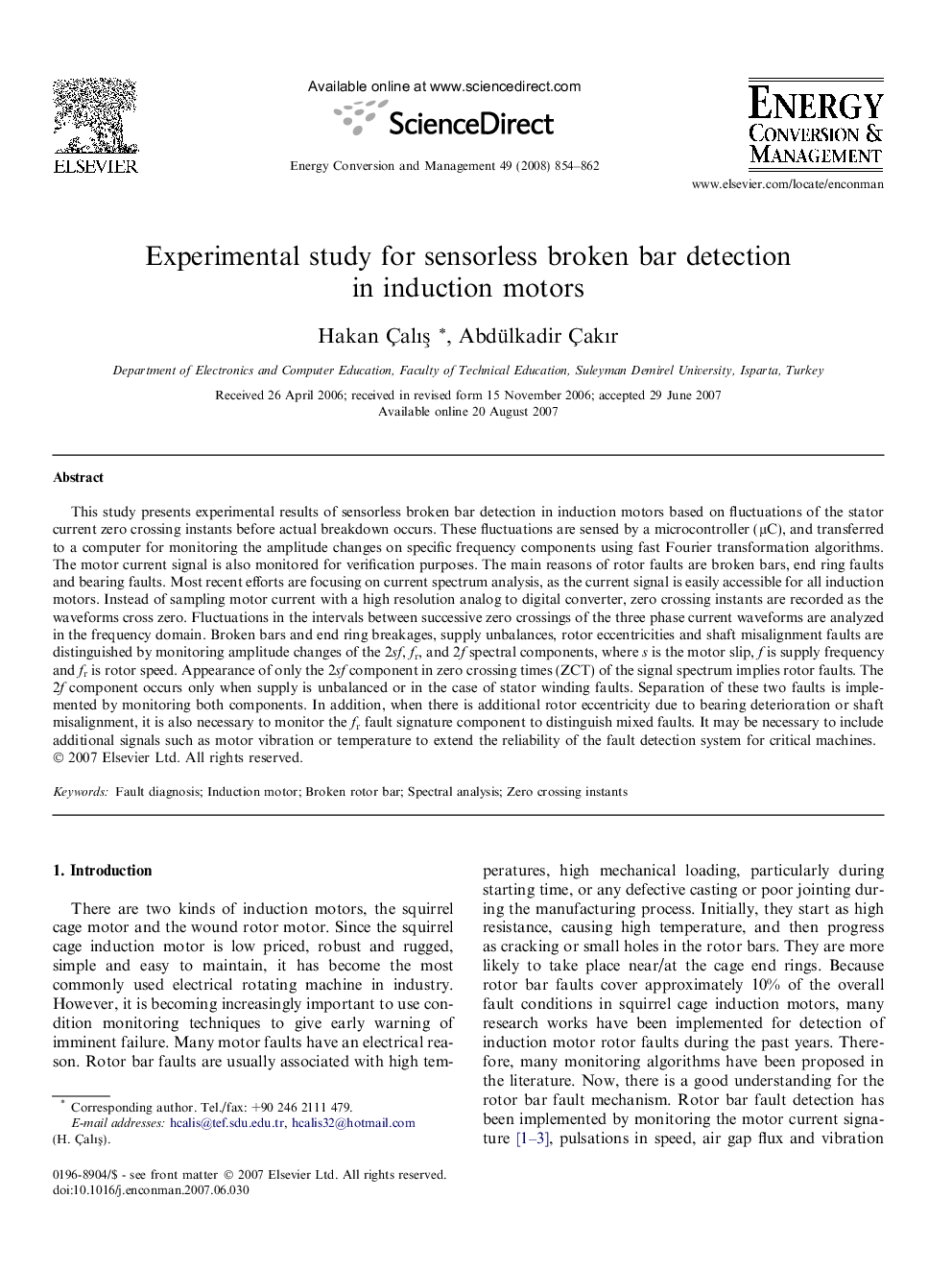| Article ID | Journal | Published Year | Pages | File Type |
|---|---|---|---|---|
| 772862 | Energy Conversion and Management | 2008 | 9 Pages |
This study presents experimental results of sensorless broken bar detection in induction motors based on fluctuations of the stator current zero crossing instants before actual breakdown occurs. These fluctuations are sensed by a microcontroller (μC), and transferred to a computer for monitoring the amplitude changes on specific frequency components using fast Fourier transformation algorithms. The motor current signal is also monitored for verification purposes. The main reasons of rotor faults are broken bars, end ring faults and bearing faults. Most recent efforts are focusing on current spectrum analysis, as the current signal is easily accessible for all induction motors. Instead of sampling motor current with a high resolution analog to digital converter, zero crossing instants are recorded as the waveforms cross zero. Fluctuations in the intervals between successive zero crossings of the three phase current waveforms are analyzed in the frequency domain. Broken bars and end ring breakages, supply unbalances, rotor eccentricities and shaft misalignment faults are distinguished by monitoring amplitude changes of the 2sf, fr, and 2f spectral components, where s is the motor slip, f is supply frequency and fr is rotor speed. Appearance of only the 2sf component in zero crossing times (ZCT) of the signal spectrum implies rotor faults. The 2f component occurs only when supply is unbalanced or in the case of stator winding faults. Separation of these two faults is implemented by monitoring both components. In addition, when there is additional rotor eccentricity due to bearing deterioration or shaft misalignment, it is also necessary to monitor the fr fault signature component to distinguish mixed faults. It may be necessary to include additional signals such as motor vibration or temperature to extend the reliability of the fault detection system for critical machines.
